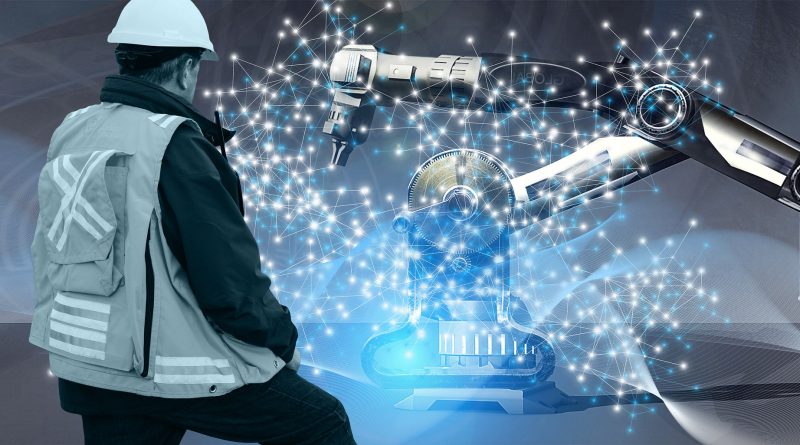How AI is Changing the Restaurant Industry
The restaurant industry is known for its rapid pace and high competition, where customer experience and operational efficiency are paramount. In recent years, Artificial Intelligence (AI) has been increasingly adopted by restaurants to enhance customer satisfaction and streamline business operations. From menu design and order processing to food preparation and customer service, AI is playing an essential role in transforming the restaurant industry. In this article, we will discuss the different ways AI is being used in the restaurant industry, the benefits and challenges of AI adoption, and the future outlook of AI in the restaurant industry.
AI in Menu Design and Planning
One of the significant areas where AI is impacting the restaurant industry is menu design and planning. AI algorithms are being used to analyze customer preferences and create personalized menus. This enables restaurants to tailor their menus to individual customer preferences, increasing customer satisfaction and loyalty. AI-powered tools are also being used for ingredient sourcing and menu planning. These tools help restaurants to optimize their menus, reduce food waste, and save on costs. Examples of restaurants using AI for menu design include Eatsa, which uses digital kiosks to provide a personalized and seamless ordering experience, and McDonald’s, which uses AI to recommend menu items based on customer preferences.
AI-enabled Restaurant Equipment
AI-enabled restaurant equipment is becoming increasingly prevalent in the industry. Automated food preparation systems, such as robotic chefs, are being used to streamline the cooking process, reducing labor costs and enhancing operational efficiency. AI-powered inventory management tools are being used to optimize inventory levels, reducing food waste and improving cost savings. For example, companies like Blendid and Creator are using robotics and AI to create customized and healthy meals for customers. With the help of AI, restaurant owners can analyze their equipment usage and predict maintenance requirements, ensuring the smooth running of operations.
However, it’s important to note that even without AI, restaurant equipment plays a vital role in the success of any establishment. From commercial ovens to refrigerators, the right equipment can help chefs produce high-quality dishes consistently, and the proper maintenance of this equipment is crucial for avoiding breakdowns that can disrupt operations. Restaurant owners need to invest in quality restaurant equipment, train their staff on proper usage and maintenance, and regularly inspect and repair their equipment to ensure their kitchen runs smoothly. Ultimately, the combination of skilled staff and reliable equipment, whether AI-enabled or not, is essential to creating a successful and profitable restaurant.
AI in Order and Payment Processing
AI is also being used in order and payment processing. Chatbots and virtual assistants are being used for order-taking and processing, enabling restaurants to offer a more efficient and personalized customer experience. AI-powered kiosks are being used for self-service ordering, which reduces wait times and enhances the customer experience. AI-enabled payment systems are also being used for faster and more secure transactions.
AI in Food Preparation and Delivery
Another area where AI is being used in the restaurant industry is food preparation and delivery. Robotics and automation are being used to streamline food preparation processes, reducing labor costs and enhancing operational efficiency. AI-powered systems are being used for predicting and managing demand, enabling restaurants to optimize their inventory and reduce food waste. Drones and autonomous vehicles are being used for food delivery, offering faster and more efficient delivery options.
AI in Customer Service and Marketing
AI is also being used in customer service and marketing. Chatbots and voice assistants are being used for customer support, enabling restaurants to provide 24/7 assistance and personalized support. AI-powered systems are being used for analyzing customer feedback and reviews, enabling restaurants to make data-driven decisions and improve the customer experience. AI-enabled marketing tools are also being used for personalized promotions and campaigns, increasing customer engagement and loyalty.
Benefits and Challenges of AI Adoption in the Restaurant Industry
The adoption of AI in the restaurant industry offers several benefits, including increased efficiency, better customer experiences, and cost savings. AI can help restaurants to streamline their operations, reduce labor costs, and optimize their inventory. AI can also help restaurants to offer a more personalized and seamless customer experience, increasing customer satisfaction and loyalty. However, there are also challenges that restaurants face in implementing AI, such as high initial costs, the need for staff training, and data privacy concerns.
Future Outlook of AI in the Restaurant Industry
The future outlook of AI in the restaurant industry is promising. As AI technology continues to advance, we can expect to see further improvements in menu design, order processing, food preparation, and customer service. We can also expect to see new AI-powered solutions emerging, such as personalized nutrition recommendations, real-time menu updates, and predictive pricing models. However, there will also be challenges that restaurants will need to address, such as the need for data privacy regulations and the potential for AI to replace human jobs. Despite the challenges of AI adoption, the future outlook of AI in the restaurant industry is promising, with further advancements expected in personalized nutrition recommendations, real-time menu updates, and predictive pricing models. With the addition of restaurant equipment, such as automated food preparation systems and AI-enabled inventory management tools, the restaurant industry is poised to continue to leverage AI for increased success.
To Wrap Up!
In conclusion, the adoption of AI is transforming the restaurant industry in various ways, including menu design, order processing, food preparation, and customer service. AI is enabling restaurants to offer a more personalized and seamless customer experience while also streamlining their operations and reducing costs. However, there are challenges that restaurants need to overcome in implementing AI, such as high initial costs and data privacy concerns. The future outlook of AI in the restaurant industry is promising, with the potential for further advancements in personalized nutrition recommendations, real-time menu updates, and predictive pricing models. Nonetheless, restaurants will need to address the potential impact of AI on human jobs and ensure compliance with data privacy regulations.
